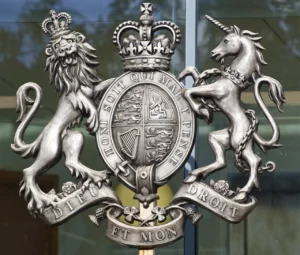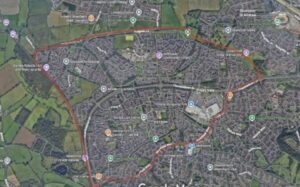Germany has implemented enhanced border controls across all nine of its borders today as part of a six-month plan to tackle illegal immigration. The measures, which include temporary structures at land crossings and spot checks by federal police, are a response to growing concerns about irregular migration following a recent series of Islamist attacks that have intensified public debate on immigration.
Interior Minister Nancy Faeser emphasized that the move is aimed at preventing criminal activity and identifying potential Islamist threats early on. We are committed to putting a stop to criminals and identifying and stopping Islamists at an early stage,” Faeser said.
However, the policy has sparked controversy both within Germany and across Europe. The move risks creating tensions within the country’s ruling centre-left coalition and has drawn criticism from neighbouring countries, including Poland and Austria. The European Commission has also raised concerns, stating that EU nations should only impose such controls in exceptional circumstances.

Germany, which sits at the heart of the visa-free Schengen zone, has already implemented border controls with Poland, the Czech Republic, Austria, and Switzerland. The new measures now extend to borders with France, Luxembourg, the Netherlands, Belgium, and Denmark. Faeser assured that efforts would be made to minimize disruption for people living and working in border regions.
Businesses operating in these areas have expressed concern over potential delays and financial consequences. Geert van Eijk, a representative of the trade association Evofenedex, warned that the enhanced controls could cost “tens, perhaps even hundreds of millions of euros.”

The introduction of the new controls comes at a time of heightened political tension in Germany. Last month, a deadly knife attack at a festival in Solingen, carried out by a Syrian man with alleged ties to ISIS, reignited the debate over immigration policies. The incident occurred ahead of regional elections in eastern Germany, where the far-right Alternative for Germany (AfD) party made significant gains.
With national elections on the horizon next year, Chancellor Olaf Scholz’s government is under pressure to demonstrate its commitment to addressing the immigration issue. Scholz recently signed a migration deal with Uzbekistan to facilitate the return of migrants and has been working on plans to speed up deportations.
However, neighbouring countries have expressed concern that Germany’s tightened border controls will shift the burden to peripheral EU nations. Polish Prime Minister Donald Tusk called Germany’s move “unacceptable,” while Austria’s Interior Minister Gerhard Karner warned that Austria would not accept migrants rejected by Germany.
The new measures will be closely monitored over the next six months, with the German government aiming to strike a balance between security and cooperation with its European partners.


































